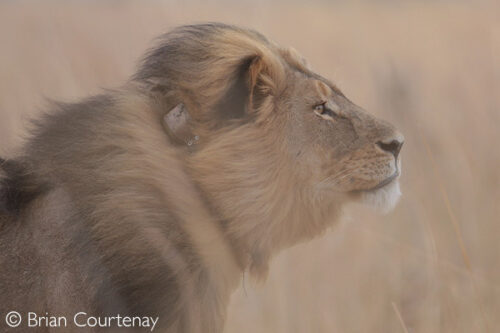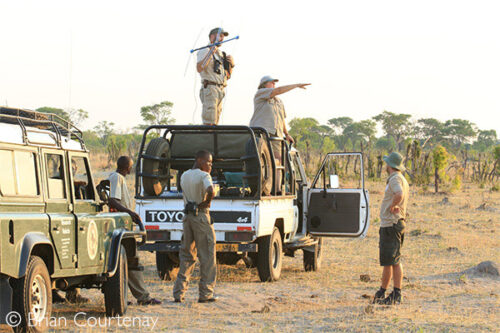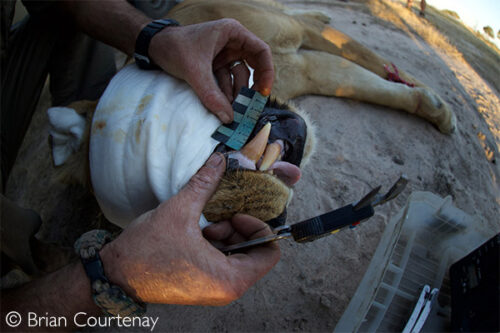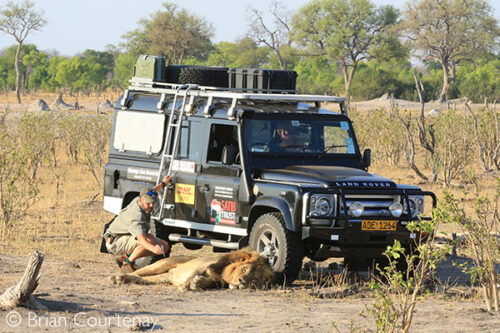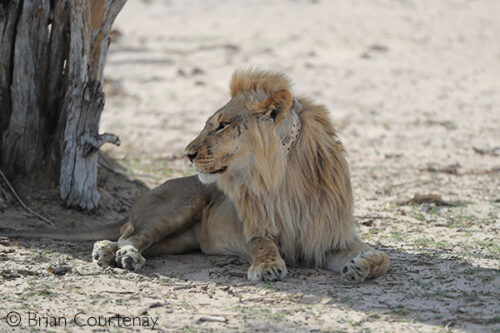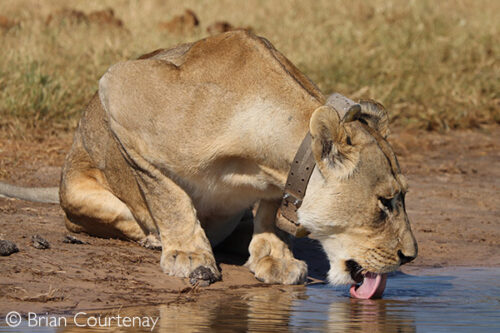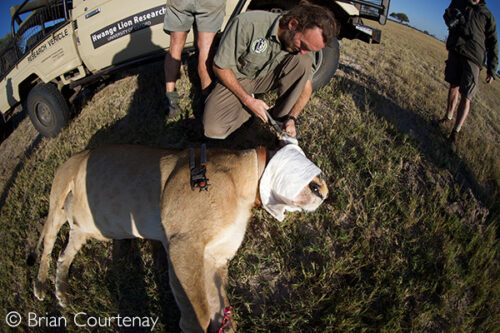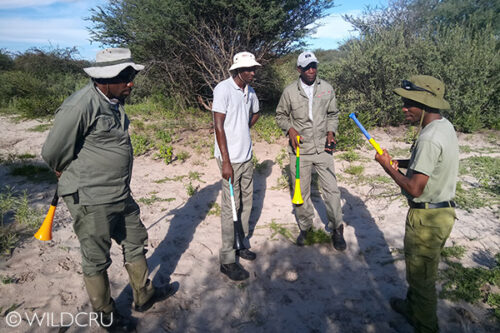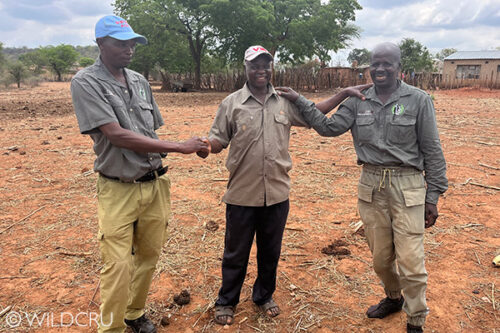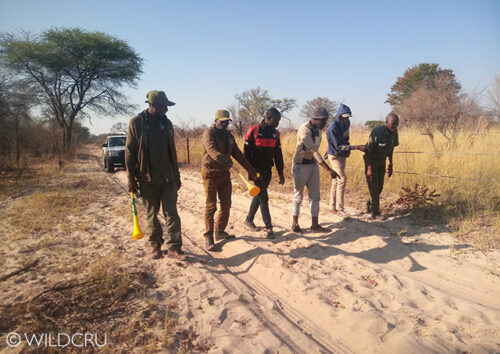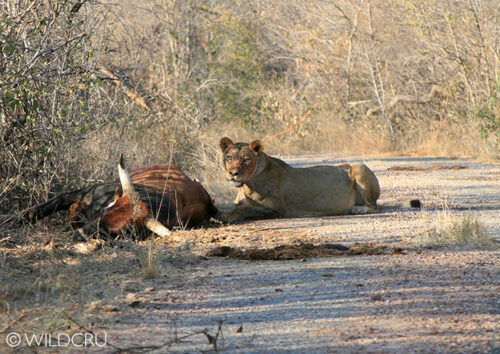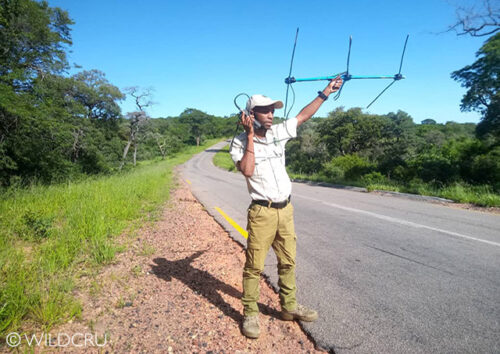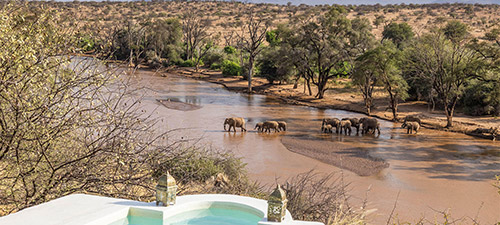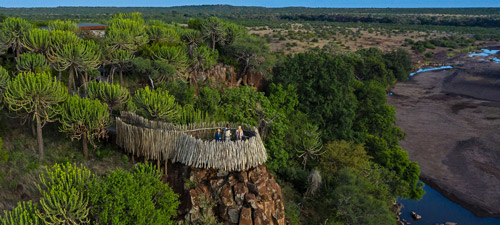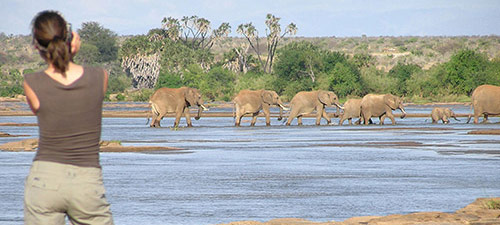How you can help save free-roaming lions
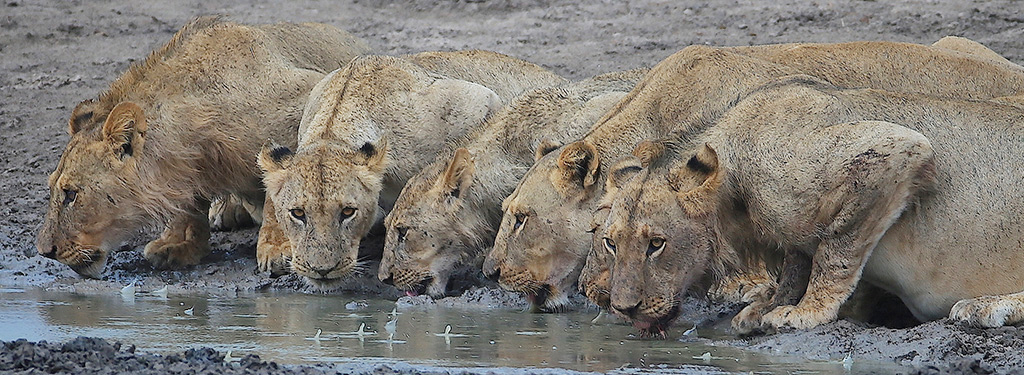
Introduction
The African lion is listed as vulnerable on the IUCN red list of threatened species – their population has decreased by 75% in just five decades (there are approximately 24,000 wild lions in Africa). Increasing human populations reduce available lion habitat, leading to a rise in human-lion conflict. Science and research are essential if we are to preserve future lion populations.
The Southern African Conservation Trust (SACT), along with project partners WILDCRU (Oxford University), the Trans-Kalahari Predator Programme (TKPP) and Nelson Mandela University, require GPS satellite collars to track the natural movement of lions between protected areas and develop lion management plans. These collars provide data for computer simulations, allowing all parties to monitor lion prides on park boundaries. They also provide an early-warning system to local communities should lions be in the vicinity, allowing them to react quickly to potential problems and avoid human-lion conflict.
Read an online PDF with more information about this opportunity to make your mark in lion conservation.
♥ How you can help lions
You can help by either:
1. DONATING any amount or
2. SPONSORING a satelite collar.
FIND OUT MORE BELOW about each of these two options.
1. How to DONATE
Click here to make your donation
Any donation – large or small – will help finance collars and support this critical conservation project. Smaller donations will be combined to enable SACT to purchase tracking collars.
2. How to SPONSOR a lion collar
Organizations or individuals can sponsor a collar exclusively – ZAR 37,000 or US$ 2,500. Several collars have already been sponsored, including four by team Africa Geographic. Join us and invest in a future for our lions.
Please email proof of payment to these SACT trustees, or alternatively, contact them for more information:
- Brian Courtenay – elephant@satib.co.za and
- David Rosen – david.rosen@sactrust.org
South African sponsors:
Pay ZAR 37,000 to the following bank account:
Absa Bank, South Africa, branch 631826, account number 4097119050
Account name: Southern African Conservation Trust
Reference: Collar a lion
International sponsors:
Pay US$ 2,500 one of the following accounts:
- Absa Bank, South Africa, swift code ABSAZAJJ, account number 647875-USD-1057-01
Account name: Southern African Conservation Trust
Reference: Collar a lion- PayPal account: Southern African Conservation Trust via donate@satibtrust.com
Reference: collar a lionLion collar sponsorship includes:
- 12–18 months of satellite tracking time (dependent on battery activity), after which it is replaced with a refurbished collar;
- you get the first option to sponsor the refurbished collar;
- all costs associated with tracking the lion and fitment of the collar, including veterinary assistance, darts, and drugs;
- general feedback and updates from SACT on the collared lion;
- audited report every twelve months showing allocation of funds raised from donors;
- South African sponsors will receive a section 18a tax certificate for submission to SARS as confirmation of their donation to a registered PBO for corporate or personal income tax concessions;
- SACT will cover any unexpected funding shortfall.
More about the project:
Data from these lion collars also assists Nelson Mandela University researchers with their work. The researchers are studying the effects that living in small fenced reserves have on the spatial and social behaviours of African wild lions. Population isolation and fragmentation as a result of fencing have proven to impact natural mechanisms such as dispersion and genetic diversity in many species. The researchers collect GPS, genetic-stress and behavioural data in a set of fenced reserves in South Africa (namely Pilanesberg Game Reserve, Marakele/Marataba, and Hluhluwe-Imfolozi Game Reserve), and compare this with data from an open system, such as Kruger National Park. With this data, researchers are able to study how aggressiveness and territoriality regarding kinship between prides are affected by management practices.
The early-warning system provided by GPS collars involves the help of those enrolled in the Long Shields Guardian Programme, which employs and trains local men and women to protect villages from lions, safeguard cattle, and aid wildlife management. Guardians patrol daily, alerting villagers through a WhatsApp group when lions approach, deterring them from community lands. This innovative ‘Mobile Boma’ concept safeguards livestock, enhances food security, and reduces lion killings. The programme’s expansion has led to an increase in crop yields, a reduction in predation, and fewer retaliatory lion deaths. Community engagement involves consultations, a comic book for children, and school visits to promote lion conservation and coexistence. Find out more on the Long Shields Guardian Programme here.

